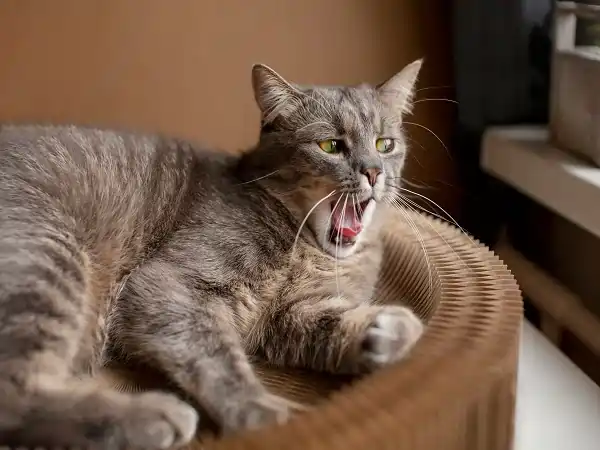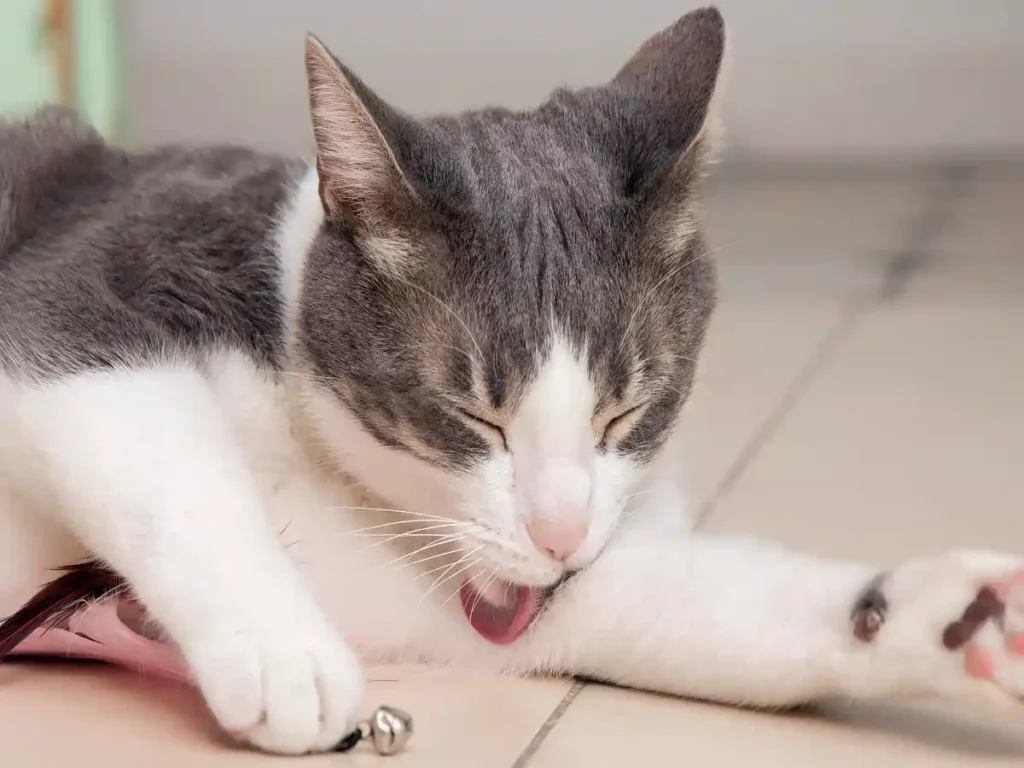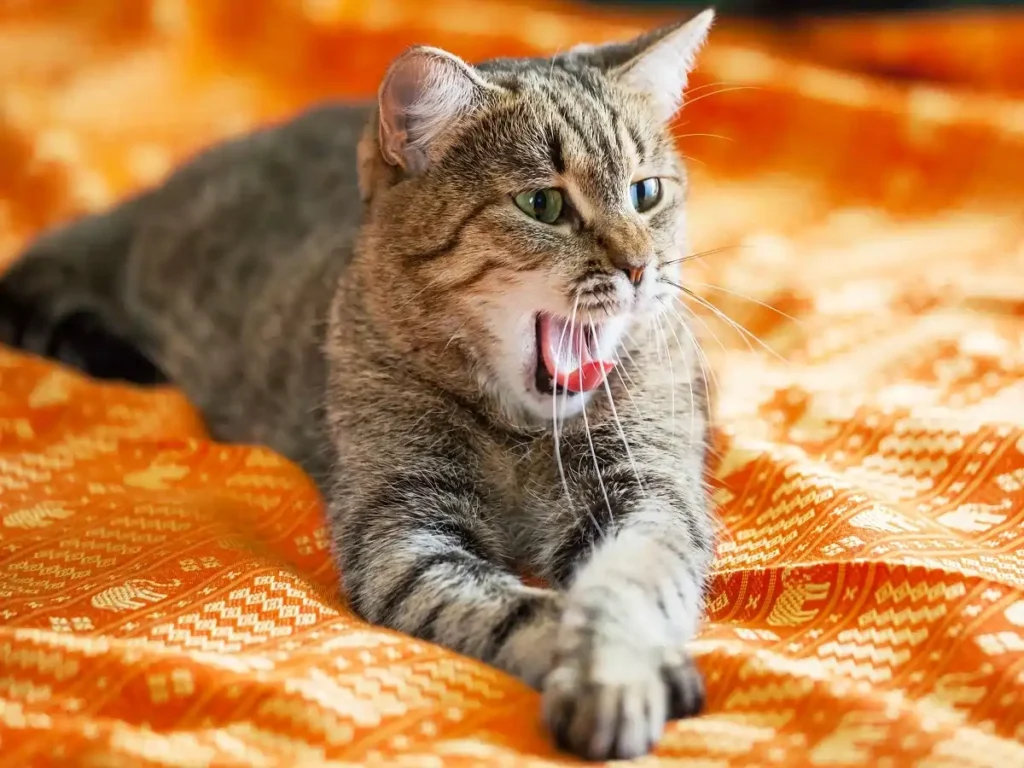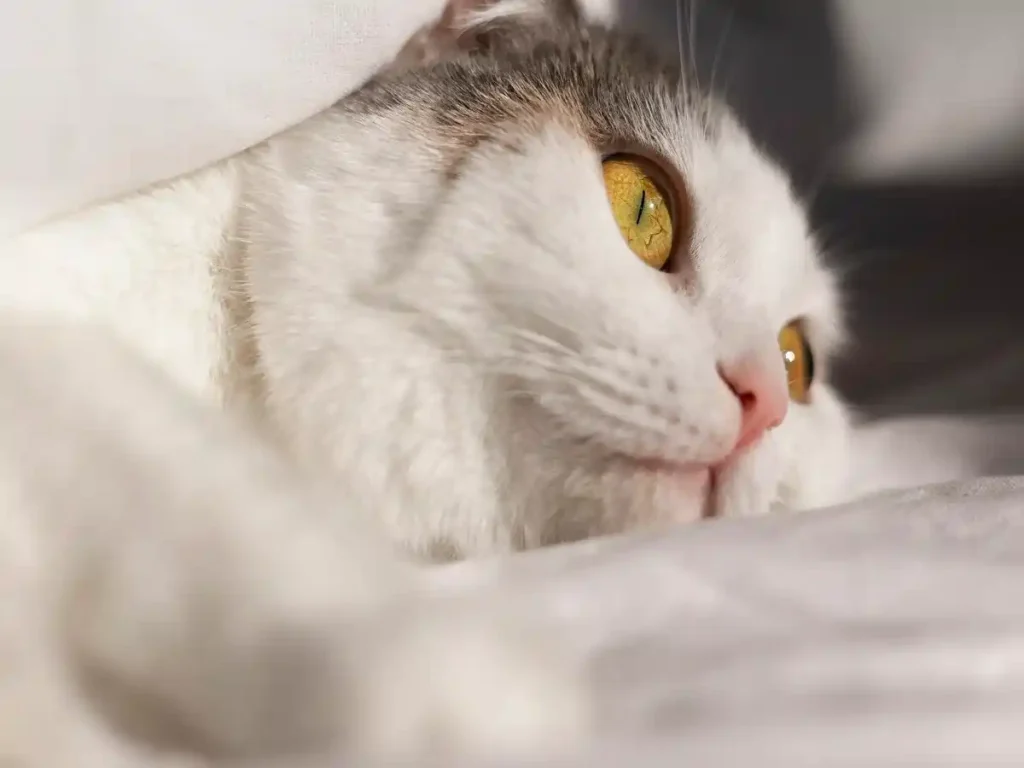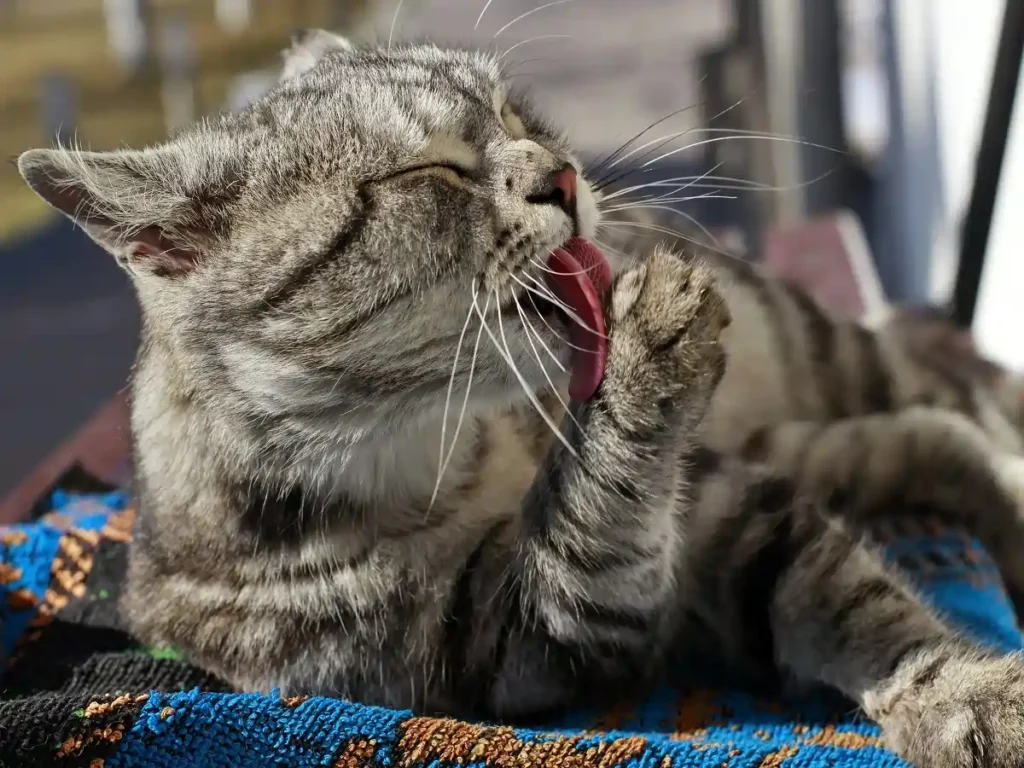Sometimes cats breathe really fast, which can worry their owners. This fast breathing is called tachypnea. It is normal for cats to breathe quickly now and then, but if it happens a lot. It might mean something is wrong with their health.
We need to know why cats breathe fast so we can help them if they are sick. There are different reasons why cats breathe fast. Some common ones are stress, being tired, or having a cold. But it could also mean they have a more serious problem like a lung infection, heart issues, or asthma. It is important to keep an eye on your cat’s breathing and take them to the vet if it seems like they are breathing too fast too often.
In this blog post, we will cover various factors that may contribute to rapid breathing in cats. We will also give you some tips on how to keep an eye on your cat’s breathing at home. And if you ever feel like your cat needs professional help, we will help you know when it is time to see the vet. Let’s dive in and figure it out together.
Table of Contents
ToggleNormal Cat Breathing
A cat usually breathes quietly and regularly when it is healthy. You might not even notice it breathing because it is so gentle and effortless. Normally, a cat takes about 20 to 30 breaths in a minute when it is resting. Their breathing should be smooth, with no breaks or strange pauses. When a cat is asleep, its breathing slows down even more and becomes really relaxed. It is important to know what is normal for your cat is breathing so you can spot any changes that might mean they are not feeling well.
Signs to Look Out For: Symptoms of Fast Breathing in Cat’s
When a cat is breathing fast, it is important to look out for other signs that something might be wrong. Here are some things to watch for:
- Hard Breathing: If your cat is breathing fast and it looks like they are having a hard time. It could mean they are in discomfort.
- Breathing through Mouth: Cats usually breathe through their nose. So, if they are breathing through their mouth. It could be a sign of trouble.
- Coughing or Wheezing: If your cat keeps coughing or wheezing. It could mean they have a respiratory infection or asthma.
- Nostril Flaring: If your cat’s nostrils look bigger when they breathe. It could mean they are struggling to get enough air.
- Change in Gum Color: If your cat’s gums look pale or bluish, it could mean they are not getting enough oxygen.
- Tiredness or Weakness: If your cat is breathing fast and also seems tired or weak. They might be sick.
- Not Eating: If your cat is not eating and is breathing fast, it could be a sign of illness.
- Restlessness or Being Agitated: If your cat seems restless or agitated. It could mean they are having trouble breathing or feeling uncomfortable.
- More Meowing: Some cat’s meow more when they are having trouble breathing or feeling sick.
- Collapsing: In severe cases, fast breathing might make your cat collapse or pass out. This is an emergency.
If you notice any of these signs along with fast breathing in your cat. It is important to take them to the vet right away. Fast breathing can be a sign of different health problems, so it is best not to ignore it.
Causes of Fast Breathing in Cats
When cats are breathing fast, it could be because of different reasons:
- Playing or Exercise: After playing or exercising, cats might breathe faster to get more oxygen.
- Stress or Anxiety: Cats can breathe fast if they are stressed or anxious about something.
- High Temperatures: When it is hot, cats might pant or breathe fast, especially if they cannot cool down.
- Poor Air Quality: Breathing in smoke, dust, or other dirty air can make cats breathe fast if they are sensitive.
- Respiratory Infections: Infections like pneumonia or heart problems can cause cats to breathe rapidly and with difficulty.
- Heart Issues: Problems with the heart, like heart failure, can make breathing fast because the heart cannot pump well.
- Asthma: Cats with asthma might wheeze and breathe fast, especially when they are having an asthma attack.
- Allergies: Allergic reactions to pollen, mold, or certain foods can make cats breathe fast.
- Obesity: Fat cats might have trouble breathing because of extra weight pressing on their chest and lungs.
- Feeling Pain: Cats in pain from injuries or stomach problems might breathe fast.
- Anemia: If a cat has anemia, they might breathe fast to try to get more oxygen to their body.
- Poisoning: Eating something toxic can make cats breathe fast as their body tries to get rid of the poison.
- Shock: Serious injuries or blood loss can shock a cat’s body, causing rapid, shallow breathing.
- Fever: A high body temperature from an infection can make cats pant and breathe fast.
- Hyperthyroidism: When a cat’s thyroid gland is too active, it can make them breathe fast and show other symptoms.
- Lung Problems: Diseases like pneumonia or lung tumours can make breathing difficult and cause fast breathing.
- High Blood Pressure: Cats with high blood pressure might breathe fast because their heart and lungs are strained.
- Fluid in Chest: If fluid builds up in a cat’s chest, it can make it hard for them to breathe and breathe fast.
- Heart-worm Disease: These worms can infect a cat’s heart, making it hard to breathe and causing rapid breathing.
- Hyperventilation Syndrome: Sometimes, cats can hyperventilate because of stress or brain problems, making them breathe really fast.
These are just some reasons why cats might breathe fast. If you are worried about your cat, it is best to talk to a vet for help.
When To Worry If Your Cat is Breathing So Fast
If your cat is breathing fast, here are some signs to look out for:
- Struggling to Breathe: If your cat is breathing quickly and it looks like they are having a hard time. It is a sign they need help from a vet.
- Breathing Stays Fast: If your cat keeps breathing fast for a while, especially if they are also showing other worrying signs. It is time to see a vet.
- Change in Behaviour: If your cat’s breathing fast and they are acting weird or different, like being tired or not eating. They might be sick and need to see a vet.
- Pale Gums or Bluish Color: Check your cat’s gums, if they look pale or bluish. It means they are not getting enough oxygen and need help from a vet.
- Lots of Panting: Cats don’t usually pant a lot like dogs do. If your cat is panting heavily, it could mean they are too hot, stressed, or sick.
- Breathing with Mouth Open: Cats usually breathe through their nose. If your cat is breathing fast with their mouth open. It is a sign they need to see a vet right away.
- Showing Signs of Pain: If your cat seems like they are in pain and also breathing fast. They need help from a vet.
- Had Breathing Problems Before: If your cat has had trouble breathing in the past. Then any fast breathing now means they should see a vet.
- Started Suddenly: If your cat’s fast breathing came on all of a sudden without any reason you can see. Then it could be an emergency, and they need to see a vet right away.
- Breathing Fast Even When Resting: If your cat is breathing fast even when they are resting or sleeping. It is a sign they need help from a vet.
In any of these situations, it is best to talk to a vet to make sure your cat gets the help they need. Fast breathing in cats can mean they are sick. It is important to get them checked out.
Tips For Helping Your Cats in Case of Fast Breathing
If your cat is breathing fast, it is important to take action to ensure their well-being. Here are some tips to help your cat if they are breathing rapidly.
- Stay Calm: Cats can sense your feelings, so staying calm can keep them from getting more worried.
- Monitor Closely: Keep an eye on how your cat is breathing and if anything, else seems wrong.
- Ensure Proper Ventilation: Make sure your cat’s area has good air and is not too hot. Give them fresh air if you can.
- Reduce Stress: Make things quiet and peaceful for your cat if they seem stressed. Give them places to hide if they need it.
- Keep Your Cat Cool: If it is hot, make sure your cat has shady spots to rest and cool surfaces to lie on.
- Drink Water: Make sure your cat always has water to drink. Dehydration can make breathing problems worse.
- Take it Easy: Try to keep your cat from doing too much if they are breathing fast because of exercise or heat.
- Go to the Vet: If your cat’s fast breathing does not stop or if they have other problems like coughing or looking tired, take them to the vet.
- Follow the Vet’s Advice: If your vet gives you a plan to treat your cat’s problem, follow it carefully.
- Emergency Help: If your cat is really struggling to breathe, collapses, or seems really sick, get them to the vet right away.
Remember, fast breathing in cats can mean they’re sick, so always take it seriously and get help if you need it.
Final Words
Understanding why your cat breathes fast is really important for keeping them healthy and for your peace of mind as a pet owner. By learning about the different reasons we talked about, you now know when fast breathing in your cat needs attention. Remember, some fast breathing is okay, but other times it might mean your cat is sick and needs to see the vet.
As good pet owners, it is our job to watch out for our cat’s breathing and be ready to act if something seems wrong. Knowing the signs and when to get help from the vet can make sure your cat gets the care, they need to stay happy and well. Don’t hesitate to talk to your vet if you are worried about your cat’s breathing or how they are doing overall. With love and care, you can help your furry friend live a long and happy life.

